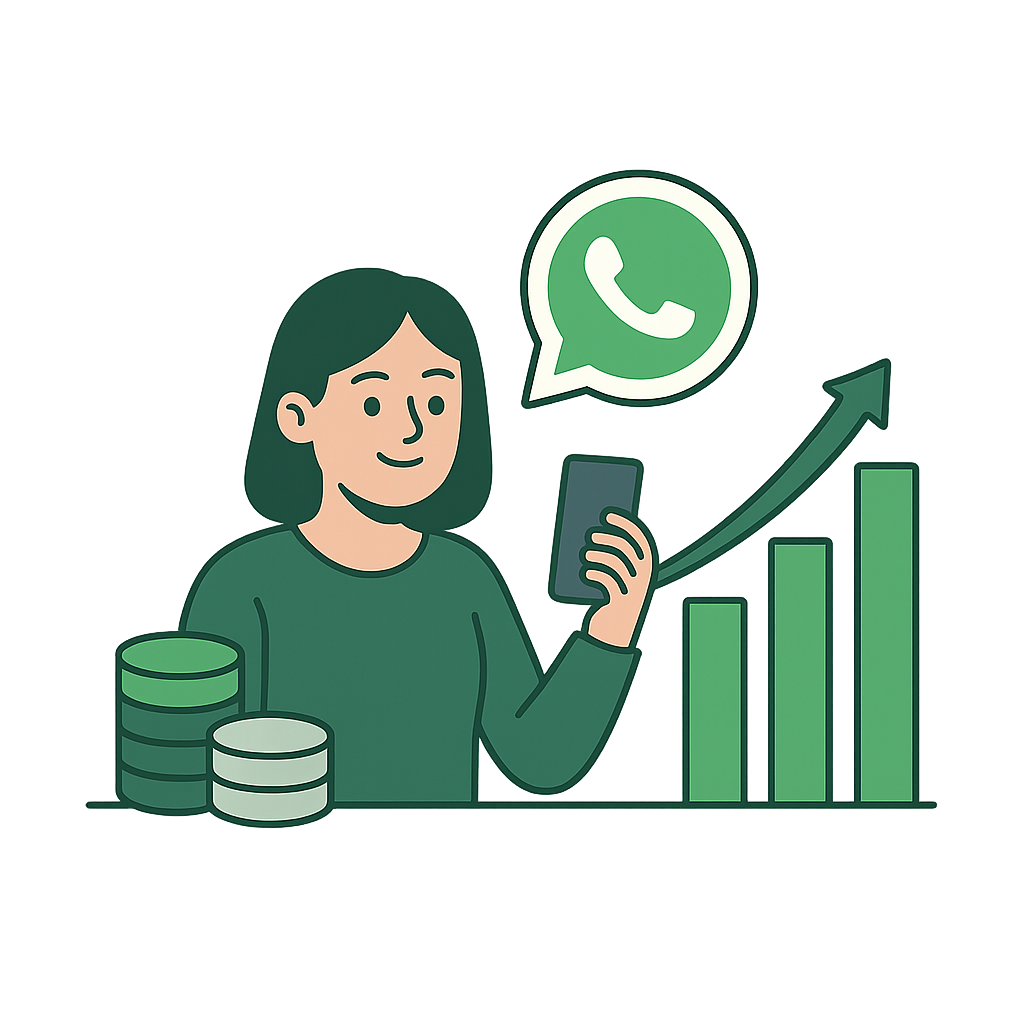How WhatsApp Campaigns Can Boost Your Business: A Complete Guide
In today’s fast-paced digital landscape, businesses need more than just great products — they need effective, direct, and personal communication channels to engage customers. WhatsApp, with its massive global user base and high message open rates, has emerged as a powerful tool for business growth.
One of the most effective ways to leverage WhatsApp for business is through targeted messaging campaigns. These campaigns allow businesses to reach customers with personalized content, special offers, and important updates — all directly on their phones, where engagement is highest.
What are WhatsApp campaigns?
WhatsApp campaigns are structured messaging initiatives where businesses send out messages to a list of opted-in customers, either for marketing, notifications, reminders, or customer relationship management. These campaigns can include:
- Promotional offers and discounts
- Appointment reminders and confirmations
- New product launches
- Event invitations
- Personalized follow-ups and re-engagement messages
Unlike emails or SMS, WhatsApp messages enjoy 90%+ open rates, making campaigns highly effective when used correctly.
Why businesses should use WhatsApp campaigns
1. Direct customer access
WhatsApp provides instant, personal access to your customers. Messages are typically read within minutes, leading to faster engagement and decision-making.
2. Higher engagement rates
Compared to email marketing, WhatsApp boasts significantly higher open, click-through, and response rates. This means your campaigns are more likely to be seen and acted upon.
3. Personalized messaging
WhatsApp allows businesses to segment audiences and tailor messages based on customer data, behavior, and preferences, making every message feel personal and relevant.
4. Cost-effective communication
With no printing, mailing, or high advertising costs, WhatsApp campaigns offer a low-cost solution with high ROI for both small and large businesses.
5. Real-time feedback and interaction
Customers can reply instantly, enabling real conversations, quick adjustments, and immediate support during campaigns.
Key use cases for WhatsApp campaigns
1. Sales and promotions
Announce flash sales, limited-time discounts, or exclusive offers directly to your customer base to drive immediate sales.
2. Customer reactivation
Re-engage inactive customers with personalized offers, loyalty program updates, or invitations to return.
3. Appointment and service reminders
Reduce no-shows and cancellations with automated appointment reminders and confirmations.
4. New product announcements
Introduce new products or services to your audience with rich media messages that include images, videos, and direct purchase links.
5. Feedback and surveys
Quickly collect customer feedback post-purchase or after support interactions to improve services and customer satisfaction.
Best practices for running WhatsApp campaigns
1. Obtain clear customer consent
Always ensure customers have opted in to receive messages. This builds trust, keeps you compliant with regulations, and ensures better engagement.
2. Segment your audience
Not every message fits every customer. Use purchase history, location, demographics, and engagement behavior to tailor your campaigns.
3. Keep messages clear and concise
Customers appreciate messages that are easy to read and act upon. Use short text, bullet points, and clear calls-to-action.
4. Use rich media wisely
Enhance your messages with images, videos, buttons, and quick replies to make your campaigns interactive and visually appealing.
5. Respect frequency
Avoid overwhelming customers with too many messages. Maintain a consistent but respectful cadence.
Measuring the success of your WhatsApp campaigns
| Metric |
Description |
Target |
| Open Rate |
% of messages opened by recipients |
>90% |
| Click-through Rate |
% of recipients clicking on your links |
>20% |
| Response Rate |
% of recipients replying to your message |
>30% |
| Unsubscribe Rate |
% of users opting out after campaigns |
<2% |
| Conversion Rate |
% of messages leading to a sale or action |
>15% |
Common mistakes to avoid
1. Spamming
Sending unsolicited or irrelevant messages can lead to customer dissatisfaction, blocking, or account penalties.
2. Over-automation
While automation saves time, avoid making your messages feel robotic. Personalization is key to maintaining customer trust and engagement.
3. Ignoring analytics
Failing to analyze performance metrics means missing opportunities for optimization and growth.
4. Non-compliance
Ensure compliance with WhatsApp Business API rules, local privacy laws (like GDPR), and proper opt-in management.
Conclusion
WhatsApp campaigns offer businesses a highly effective channel for reaching customers with personalized, timely, and engaging messages. When executed properly, these campaigns can drive sales, strengthen customer relationships, and give your business a competitive edge.
By following best practices, measuring performance, and continually optimizing your campaigns, WhatsApp can become one of your most powerful business growth tools.
